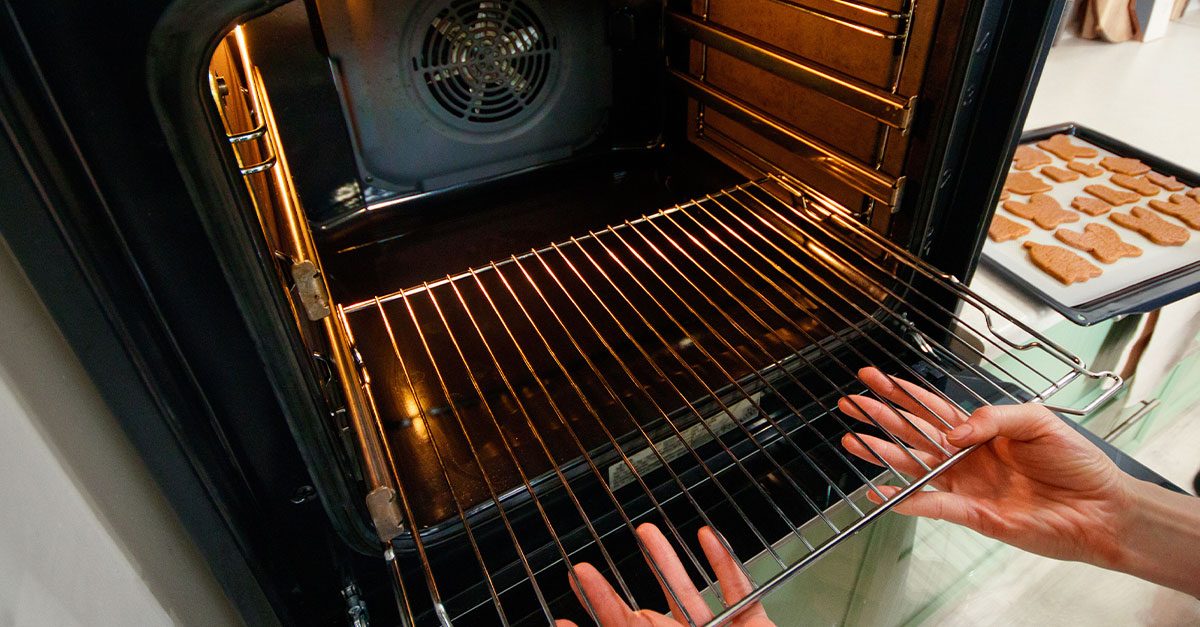;)
Using an oven is a straightforward task, but that isn't always the case. You may be making any of the mistakes compiled in this list; each of which may damage the equipment or even pose harm to you.
1. You use the convection setting on the wrong foods

Some ovens have a convection setting that allows even spread of heat throughout the oven using a fan. This setting cooks food quicker than usual so if used for inappropriate foods, it may result in over-cooked or burnt meals. So, always stick to the baking setting unless stated otherwise as is commonly done for layer cakes and baking multiples at a time.
2. You put items directly on the heating element
The heating element is very hot and should never come into direct contact with food or other flammable materials like parchment paper. Although rare, you can prevent fire outbreaks in the oven by steering clear of such highly heated parts of the oven.
3. You've been cooking with wax paper

Wax paper and parchment paper look similar but the presence of wax makes a highly significant difference. While wax helps wick away moisture, it isn’t so tough against heat. Put it in a hot oven and it will melt or even worse, cause the paper to catch fire.
4. You leave your oven dirty for days or longer
Your daily kitchen cleanup should include cleaning your oven. This will prevent the buildup of dirt and accompanying deterioration of parts of the oven. A good tip is to wipe the oven down after every use and clean used trays. This will not only keep the machine long-lasting, it will prevent smoke during preheating the next time around.
5. You forget to clean the nooks and crannies in your oven

If you constantly ignore the hard-to-reach parts of your oven, they may attract pests or emit unpalatable odors. An expert recommendation is to wrap a butter knife with a damp washcloth, then rub it over the wall inside the crack. Keep the knife angled up to prevent crumbs from falling to the floor, and shake debris out in the sink or trash after each pass. When it seems clean, replace the cloth with a vinegar-dampened one and go over the walls again.
6. You let food mess pour on the oven floor
The best way to prevent caked food mess in your oven is to catch them before they hit the bottom of the oven. Place a disposable oven liner, drip tray or empty cookie sheet on the floor of the oven and cleanup will stop being tasking.
7. You place frozen foods in your oven without thawing them first

Doing this will leave the frozen food partially cooked and you'll be exposed to possible food poisoning. That's because the food item, especially meats, will have a shorter cooking time and risk coming out undercooked. So, let frozen foods fully defrost before cooking in an oven.
8. You assume the temperature is accurate
Ovens measure the temperature at one spot which is typically programmed to be out of the way, where your food would never go. Since spots in your oven have different temperatures, your food may not be cooking at the temperature you expected. The easiest solution is to buy an oven thermometer, to ensure that your oven is properly heated and cooking your food at the required temperature.
9. You don't disinfect the knobs

Like the average door handle, your oven knobs may harbor more dirt and harmful microbes than you could ever imagine as they are constantly touched. Next time, you're cleaning your oven, remove the knobs and let them sit in a tub of warm water mixed with 1/4 cup all-purpose cleaner to disinfect. Follow with a thorough scrub and dry.
10. You leave the racks in when self-cleaning
If your oven comes with a self-cleaning feature, ensure that the manufacturer approves of leaving the racks before you do. This will help you prevent early discoloration and peeling of the coating that helps them slide out easily. Clean them by hand instead.
;Resize,width=767;)
